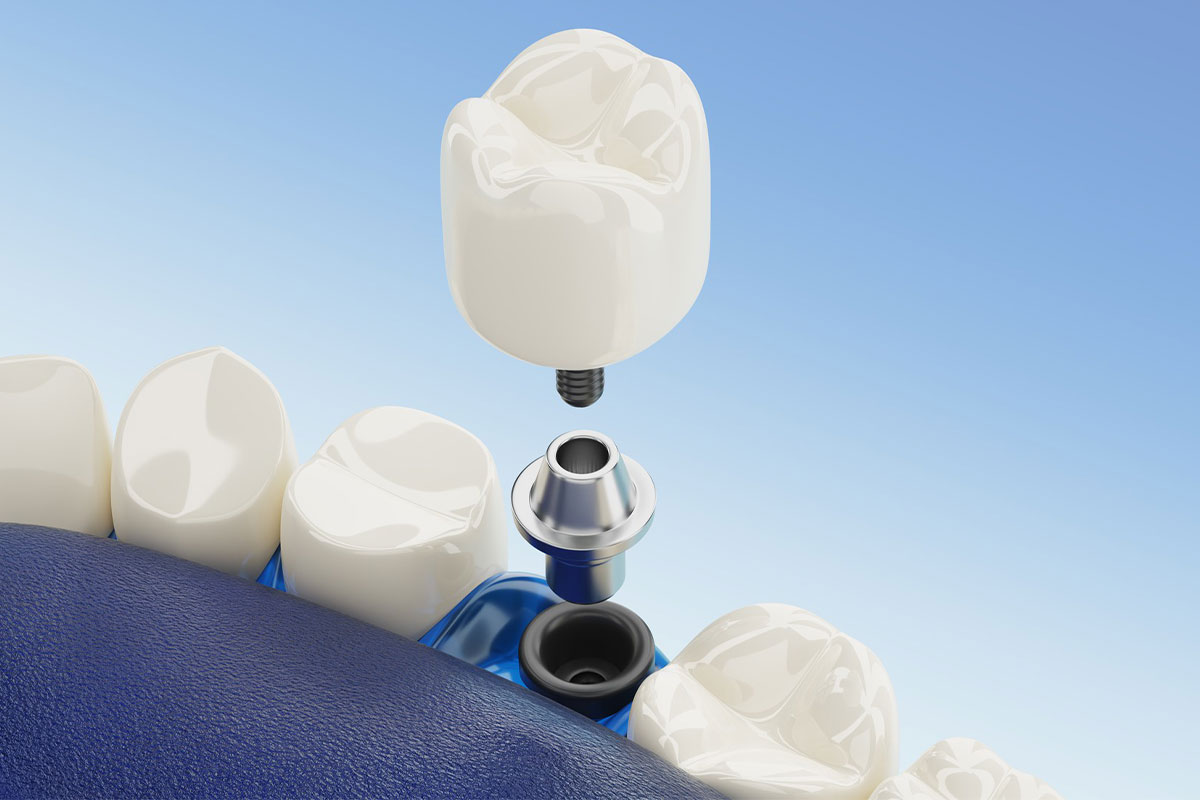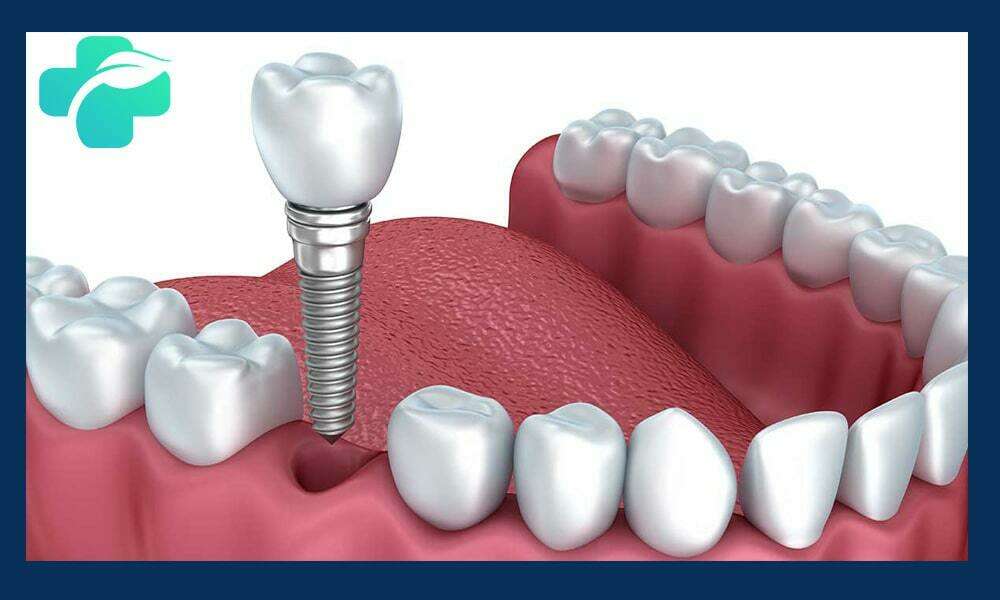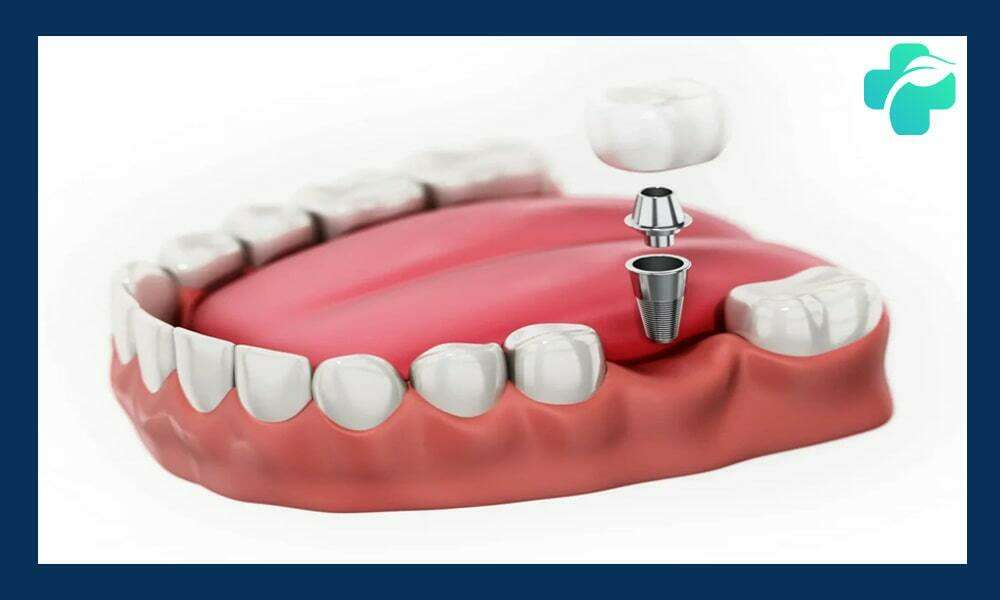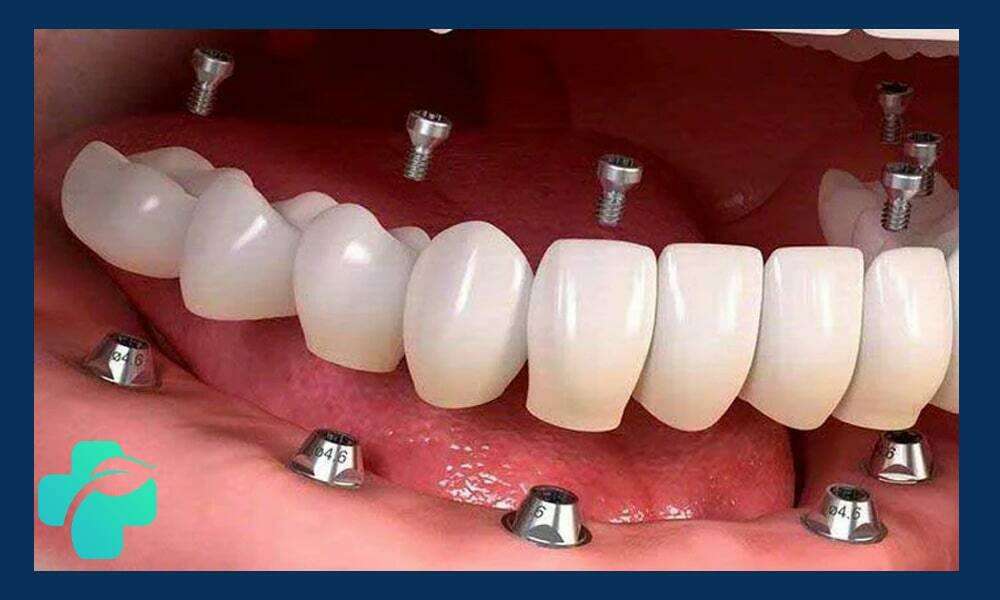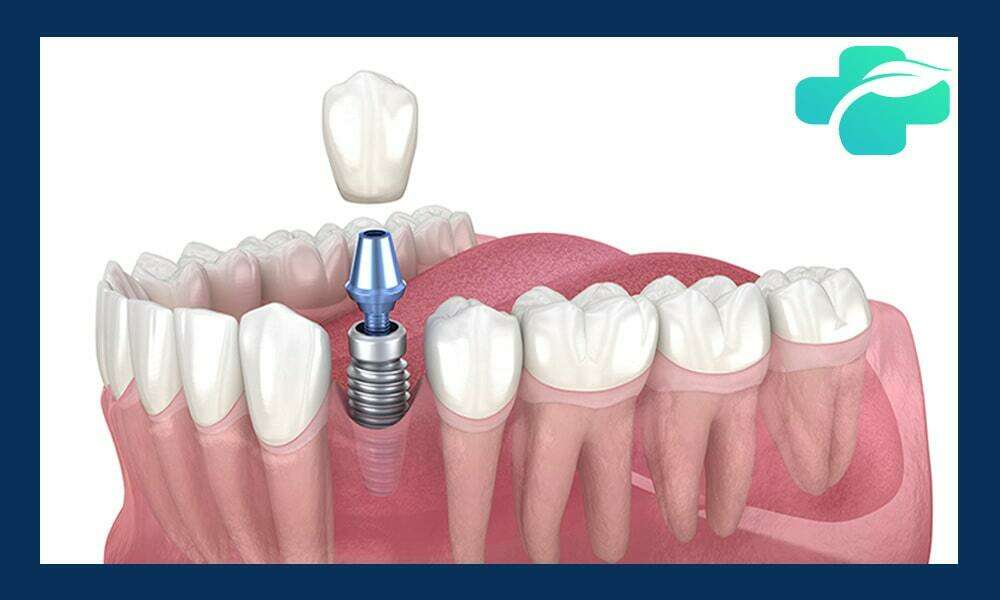Implant is one of the most advanced methods of tooth placement or implant placement, which uses a titanium metal screw inside the jawbone in place of the natural tooth root to create a firm foundation for the replacement tooth. After fusing with the jawbone, this implant foundation acts as a stabilizer for placing a fixed prosthesis or implant-supported prosthesis, optimally restoring the function and aesthetics of a natural tooth. If you are looking for a permanent solution for replacing missing teeth, dental implants will be a smart and effective choice. In addition to implant treatments, procedures such as dental laminates also play an important role in the aesthetics of the smile. The combination of implant and laminate treatments can simultaneously bring you the strength, function, and beauty of your teeth.
Benefits of Dental Implants
Dental implants offer significant advantages over other replacement methods such as removable dentures or bridges, which include:
Natural Appearance and Greater Aesthetics: The implant prosthesis is completely similar to a natural tooth and improves the smile.
Jawbone Preservation: The implant post acts like a natural root and prevents bone loss.
High Strength and Functionality: It provides the possibility for better chewing and smoother speech.
Great Durability and Longevity: With proper care, a dental implant can last for many years.
No Need to Damage Adjacent Teeth: Unlike a bridge, no natural teeth are ground down.
Pain-Free Dental Implant: With new surgical techniques and appropriate anesthesia, the placement process is very low-pain and safe.
When is a Dental Implant Recommended?
The right time to get a dental implant is usually after losing a tooth or extracting a damaged tooth. When the jawbone is healthy and the patient has controlled issues such as infection or gum disease, implant surgery yields the best results. Also, people looking to replace a single tooth, several teeth, or even a full dental implant or full-arch tooth replacement can benefit from this method. Same-day dental implants are also an attractive option for those who want a shorter time frame and faster treatment.
Types of Dental Implants and Their Applications
Implants are divided into several categories based on design and method of use:
Endosteal Implants (Bone Implants): The most common type, which is placed in the jawbone.
Subperiosteal Implants: Suitable for individuals with very weak jawbones.
Digital Implants: Designed and installed using 3D imaging technology and computer software, offering higher precision and less pain.
Same-Day Dental Implants or Immediate Implants: A method where a temporary or final tooth is installed on the implant post on the same day of surgery.
Each of these types has its own specific advantages, and the best option will be chosen based on the patient’s needs and condition.
Cost of Dental Implants
One of the important questions patients seek an answer to is the cost of a dental implant. This cost depends on various factors such as the type of implant post, the number of teeth implanted, the need for bone grafting, the implant component brand, the surgeon’s specialization, and the clinic in question.
| Service | Approximate Price (Toman) | Description |
| Standard Single Implant | … | Placement of one dental implant with a titanium post |
| Full Dental Implant | … | Placement of multiple teeth or a full-arch prosthesis |
| Same-Day Dental Implant | … | Placement with an immediate crown in the same session |
| Bone Grafting | … | If bone volume increase in the jaw is needed |
Digital Dental Implants
Digital implants are a significant innovation in the field of oral and dental medicine that increases accuracy and reduces errors through 3D design and the use of precise surgical guides.
This method allows for accurate planning of the implant post placement and appropriate timing, and because the surgery can be performed with minimal invasiveness, it is recommended for patients seeking a pain-free dental implant. Digital dental implants also make the treatment faster and easier and increase the probability of success.
Same-Day Implant (Immediate Implant)
The same-day dental implant is one of the newest methods where the placement of the post and the tooth crown or temporary prosthesis is done on the same day. This method is highly suitable for individuals who want a replacement tooth in the shortest possible time.
However, the jaw condition and oral health must be entirely suitable to benefit from the same-day dental implant method. Despite the speed of treatment, this method, like others, requires follow-up care and prevention of infection.
Stages of Dental Implants
The stages of dental implant placement are carried out systematically and precisely through the following steps:
Initial Examination and Consultation:
Evaluation of teeth and jaw health using 3D images and clinical examination. In some cases where the upper jawbone lacks sufficient thickness, a sinus lift procedure may be performed to strengthen the bone before starting treatment.
Precise Planning: Determining the placement site for the implant post and the appropriate type of prosthesis.
Dental Implant Surgery: Placing the post in the jawbone with precision and without pain.
Healing and Osseointegration Period: The post fusing with the bone (usually 3 to 6 months).
Abutment and Fixed Prosthesis Placement: Placing the connecting piece and then the crown or prosthesis on the implanted tooth.
Post-Surgical Care: Including observing hygiene, avoiding excessive pressure, and regular visits to the dentist.
Dental Implant Surgery
Dental implant surgery is usually performed under local anesthesia, and with modern techniques, the amount of pain and bleeding is significantly reduced. In advanced methods like pain-free dental implants, small incisions are made with minimal tissue damage, and the operating time is significantly shorter. The main challenge of the surgery is the precision in placing the implant post so that sufficient stability and complete fusion with the bone are achieved. Having dental implant surgery performed by an experienced specialist guarantees the quality and longevity of the implant.
How Long Do Dental Implants Last?
With proper care, a dental implant can last more than 20 years and even a lifetime. Maintaining oral hygiene, regular check-ups, and avoiding harmful habits like smoking have a direct impact on the longevity of the implanted tooth. Furthermore, the use of digital implants and precise dental implant surgery increases the success and durability of the implant post.
Samples of Implant Treatments
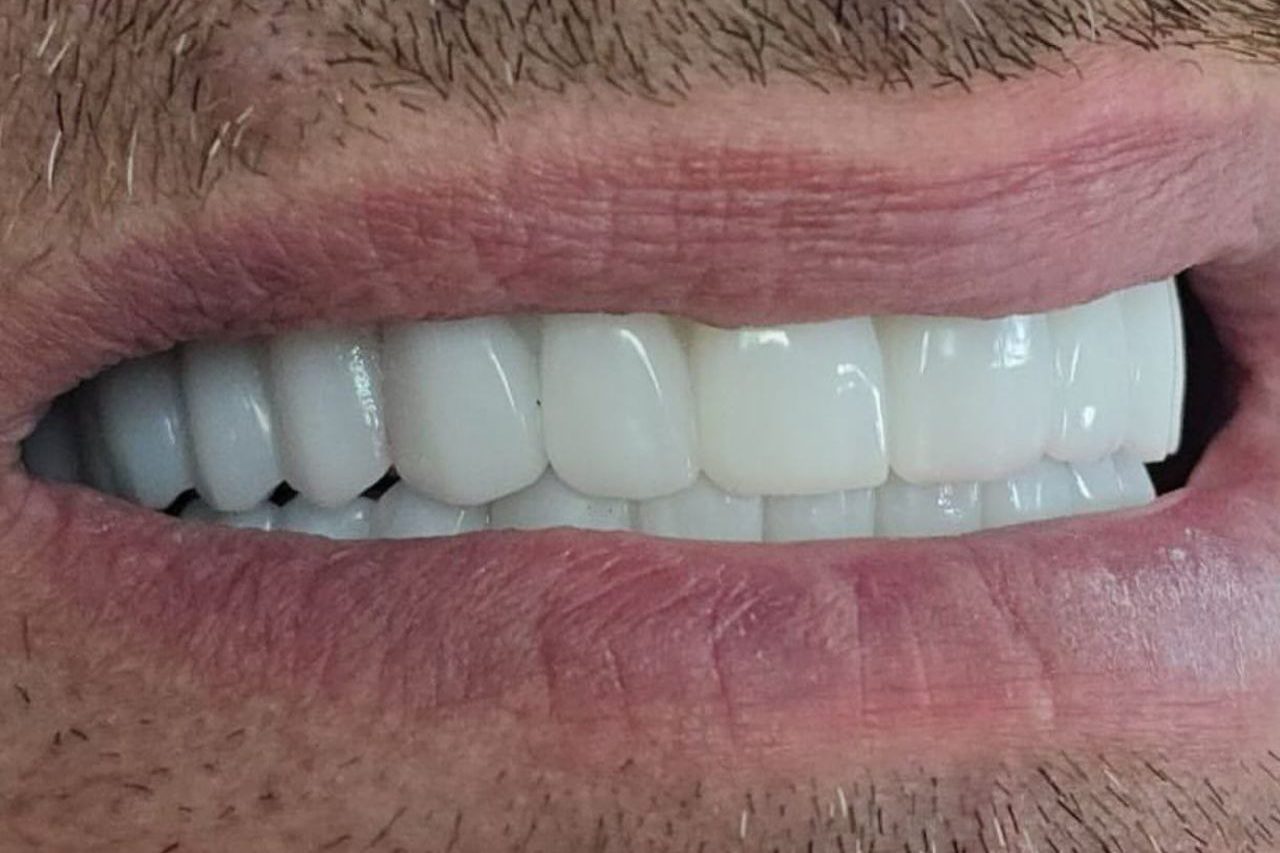
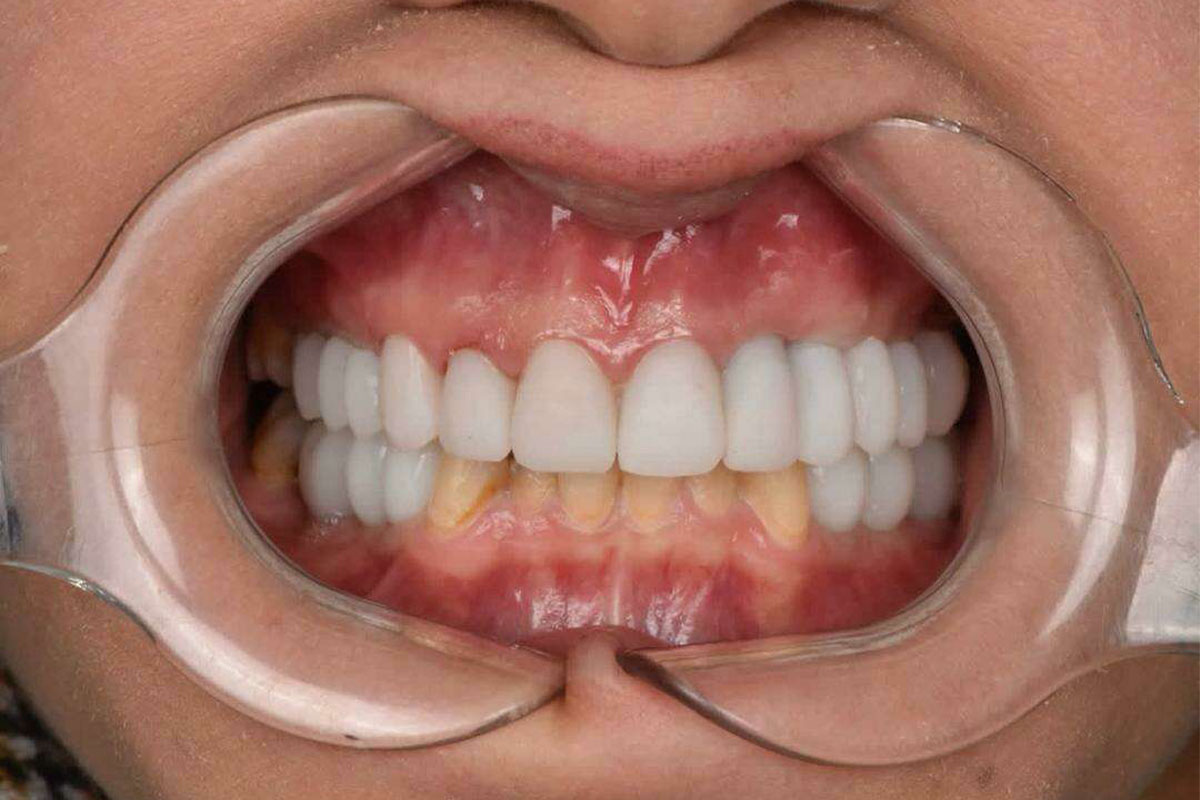
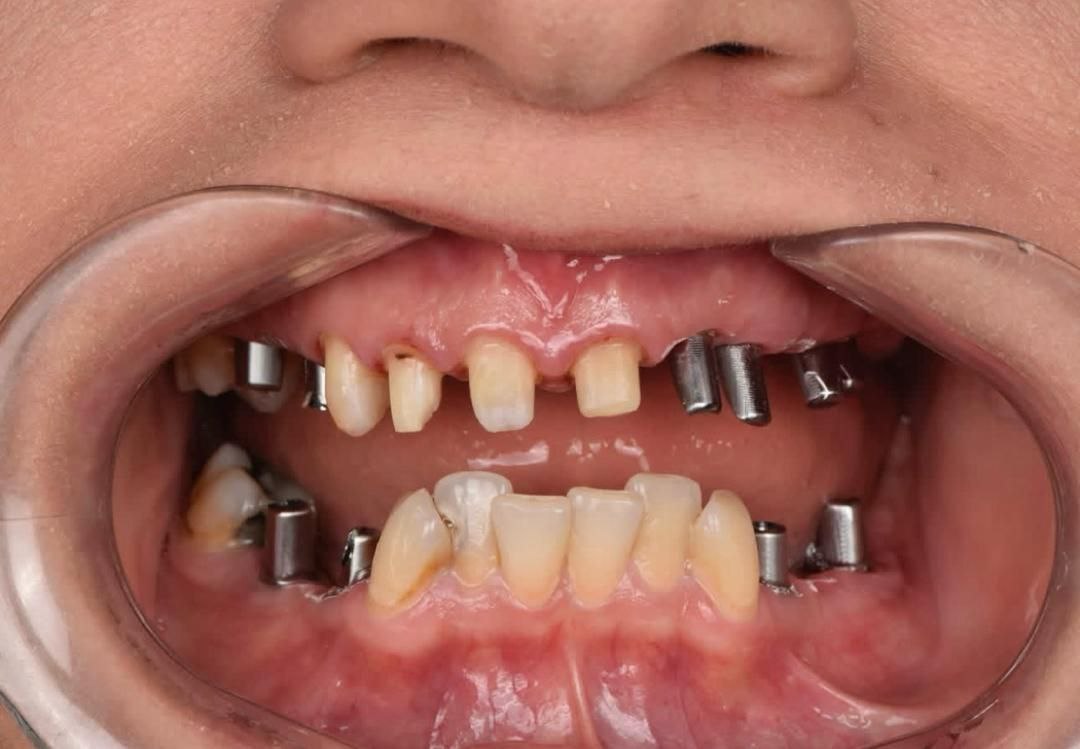



Frequently Asked Questions about Implants
Are dental implants suitable for all ages?
It is most suitable for people over 18 years of age whose jawbone has completed growth. It is not recommended for children and adolescents.
Can an implant be installed at the same time as a tooth extraction?
Yes, in some special cases and with appropriate bone conditions, immediate implant placement after tooth extraction can be performed.
How many times should I visit for implant treatment?
Typically, 3 to 5 sessions are required for examinations, surgery, and installation of temporary and final dentures.
Are dental implants possible for diabetic patients?
If blood sugar is controlled and diabetes is stable, dental implants are possible and should be performed under the supervision of a doctor.
Is there a need to follow a special diet after implants?
For the first few days, it is recommended to eat soft, cool foods and avoid putting pressure on the surgical site.

